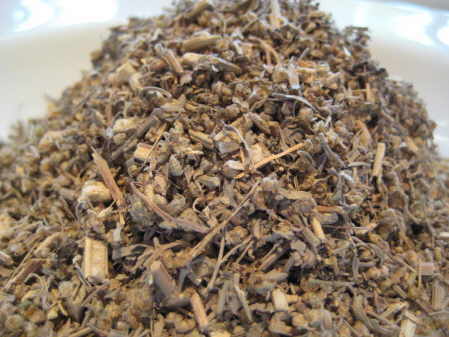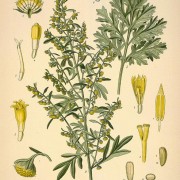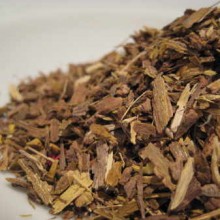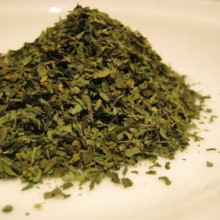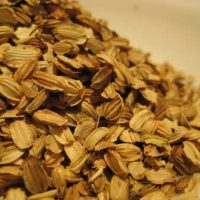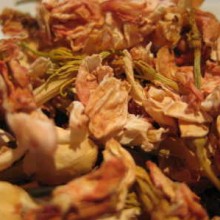Grand Wormwood (Artemisia absinthium) is a species native to temperate regions of Eurasia and northern Africa. like Artemisia’s everywhere, they are mostly known as Wormwood which makes it a bit confusing. Mugwort, Southernwood and Sweet Annie are all Wormwoods.
The leaves and flowering tops of Artemisia absinthium are gathered when the plant is in full bloom, and dried naturally or with artificial heat. Its active substances include silica, two bitter elements (absinthine and anabsinthine), thujone, tannic and resinous substances, malic acid, and succinic acid.
Usage for Grand Wormwood:-
It is an ingredient in absinthe, which contrary to popular belief was never banned in the UK during la Belle Epoch although it was throughout the rest of Europe until the recipe changed. It is still used for flavouring in some other spirits and wines which include the bitters, vermouth and pelinkovac.
In the Middle Ages, it was used to spice mead, a honeyed wine, and in Morocco it is still used as tea which we heartily recommend as a digestive.
In 18th century England, wormwood was sometimes used instead of the better known hop in beer manufacturing.
A handful of Lavender, Wormwood and Rosemary stuffed in an old sock is an effective deterrant to moths in a wardrobe. Refresh by squeezing occasionally and wetting with some kind of spirit to release the essential oils.
Its traditional use has been claimed to remedy indigestion and gastric pain, and it acts as an antiseptic, and as a febrifuge.
Etymology
The word “wormwood” comes from Middle English “wormwode” or “wermode”. The form “wormwood” is influenced by the traditional use as a cure for intestinal worms. Webster’s Third New International Dictionary attributes the etymology to Old English “wermōd” (compare with German Wermut and the derived drink Vermouth). An alternate explanation dubiously combines the Old English “wer”, meaning “man” (as in “werewolf”), with OE “mōd”, meaning “mood”.

